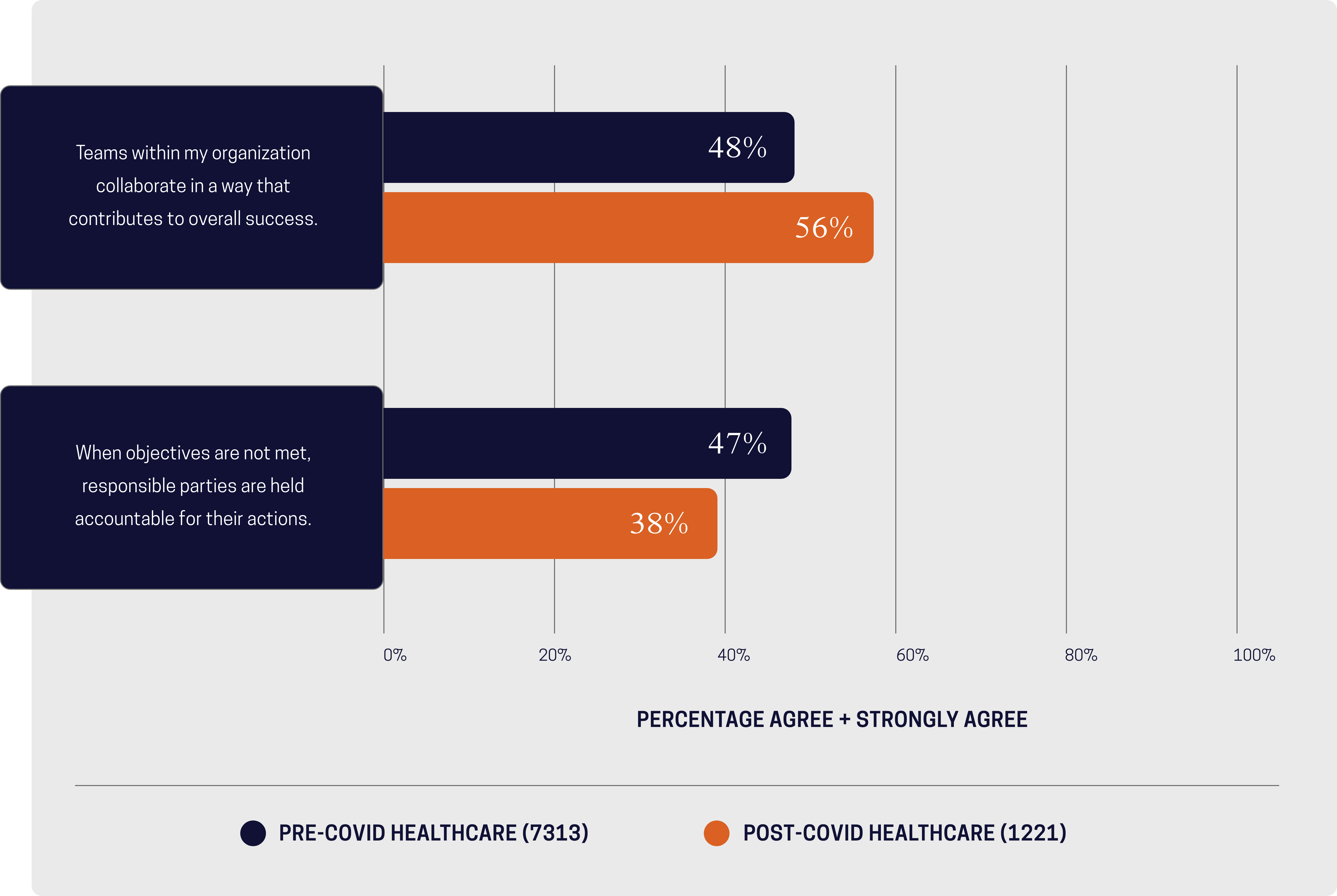McChrystal Group partnered with a leading children’s hospital to help the leaders of a cross-functional center better understand how communication failures and siloing among functional departments led to a lack of accountability, trust, and effective operations, which ultimately could impact patient care.
Clinical staff were not trained or accustomed to working collaboratively across disciplines. When placed in leadership positions where they needed to build a strategy for the center, physicians were uncomfortable speaking up, providing constructive criticism to their peers, and struggled with prioritization.
McChrystal Group helped the center build its first-ever comprehensive strategy, which provided a roadmap for improved outcomes, financial stability, and growth across all functional disciplines. McChrystal Group facilitated cross-functional leadership team meetings where strategy execution was measured against key performance indicators, ensuring resources were distributed transparently and teams were held accountable on progress toward goals.
This cross-functional strategic planning helped the center align its day-to-day operations against a mission, vision, and values, which improved work culture and employee engagement among staff and clinicians. Physician leaders were better able to engage their administrative partners to execute strategic initiatives, thereby ensuring improved information sharing and process refinement across teams.
Following months of hands-on work with our embedded team, physician leaders reported feeling more empowered to guide the collective future of the organization rather than focusing only on their area of specialty. They had clarity about center-level priorities and objectives, which allowed them to focus scarce resources and time on projects that helped the center achieve it’s overarching goals.
This article is part of a series of industry insights utilizing McChrystal Group’s proprietary data to highlight industry-specific insights and strategies leaders can adopt to address them.





